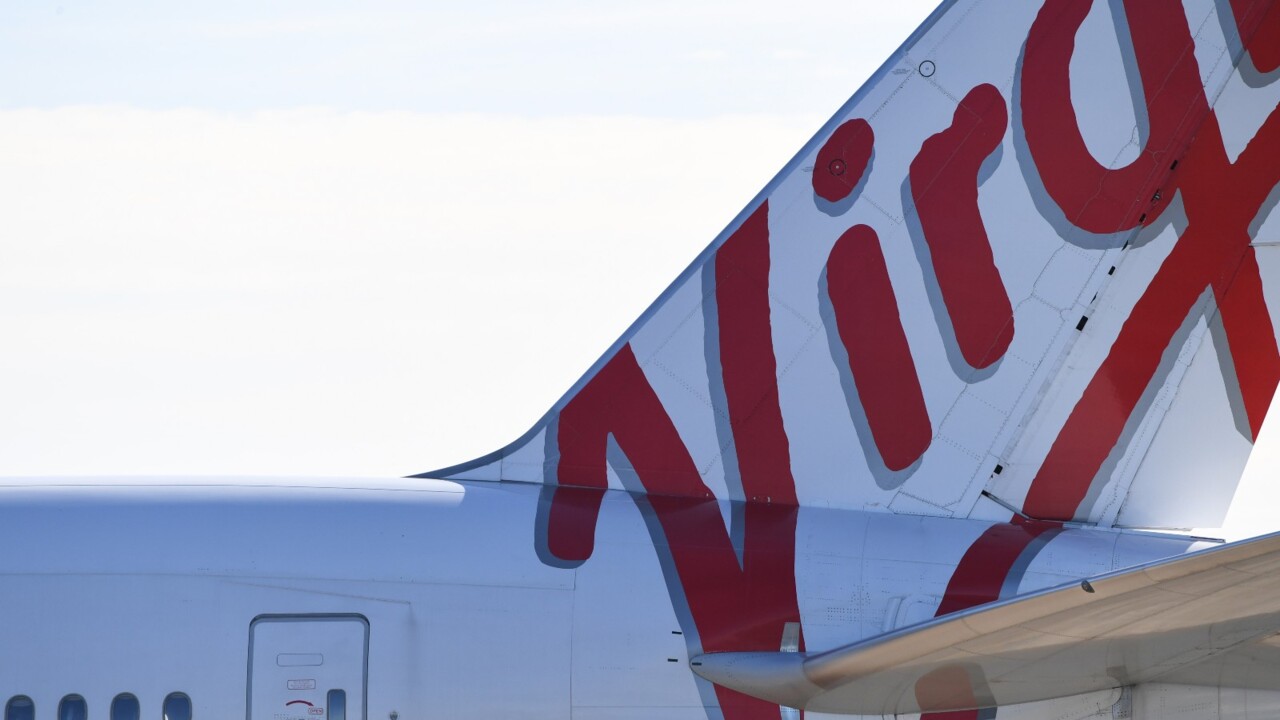Airline turbulence: Virgin trails Qantas again
Virgin was the worst performing airline in terms of cancelled flights and late departures for November, rounding out a year with a delayed IPO and union issues.

Virgin Australia won the airline race to the bottom during the month of November, cancelling the most flights of any carrier and also suffering the worst on time departures, according to Australian government data.
It was a particularly poor showing from the Brisbane-based carrier, which had only just over half its flights land on time and only 57 per cent depart on time, with a cancellation rate of 6.2 per cent. That compares to the best performer Rex, which had 74 per cent on time departures and the lowest cancellation rate of 0.9 per cent.
“We always work hard to deliver our customers great value and choice … we apologise that in November our operational performance was below our standards and did not meet all of our customers’ expectations,” said a Virgin spokesman.
The monthly BITRE statistics showed on time departures and arrivals for all carriers remained significantly below general trends.

In 2019 – before the pandemic – only Qantas’s low cost unit Jetstar had a rate below 70 per cent for the year. Back then, Virgin notched up 76.2 per cent for the year, Rex had a rate of 84.3 per cent and Qantas got 71.3 per cent of its flights away on time. Only Jetsar had a cancellation rate above the 2s with a 7 per cent rate for the year.
In the BITRE monthly statistics for November released on Thursday, Qantas had 68.1 per cent of its flights leave on time and a cancellation rate of 3.3 per cent.
Jetstar had a 66.7 per cent on time departure rate and 2.7 per cent cancellation rate – the second best for the month.
Jetstar’s performance would be music to the ears of chief executive Stephanie Tully, who was only appointed to the role just over a year ago and has had a tough job turning the airline around post Covid-19.
Virgin has also managed a remarkable comeback after collapsing during the pandemic and being snapped up from administration by Bain Capital. It’s now run by former Jetstar CEO Jayne Hrdlicka and recently notched up its first full year profit in a decade.

Perhaps as a result of its recent successes, the airline is now contending with staff who were happy to take what they could get when Virgin was getting back off the ground but now want a better deal.
Facing threats of industrial action, the airline recently reached an in-principle agreement with unions on a new Cabin Crew enterprise agreement, avoiding disruptive industrial action at the most important time of the year for travel.
Executives at the airline would have also been disappointed with its planned $3bn float being pulled for 2023, which would have resulted in stock-riches for many.
Bankers are now aiming for a May float on the basis that volatile global equity markets – which shuttered the IPO market – may have stabilised by then.
As it grapples with its recent poor-performance, Virgin has reintroduced its “Guest Ambassador” program again during the holidays, with corporate staff helping frontline teams with customers at major airports across the country.
Not one to miss any easy kick, Qantas responded to the November statistics by declaring it was “the most reliable major domestic airline” based on a variety of factors.

“The latest government data shows that Qantas, Qantas and QantasLink combined, (68.1 per cent) was more than 11 percentage points ahead of its main domestic competitor (57 per cent) for on time departures. This translates into thousands of more on time flights for Qantas customers,” Qantas said in a statement.
“Qantas also cancelled fewer flights in November with 3.3 per cent cancelled compared to its major competitor’s 6.2 per cent,” the airline said.






To join the conversation, please log in. Don't have an account? Register
Join the conversation, you are commenting as Logout